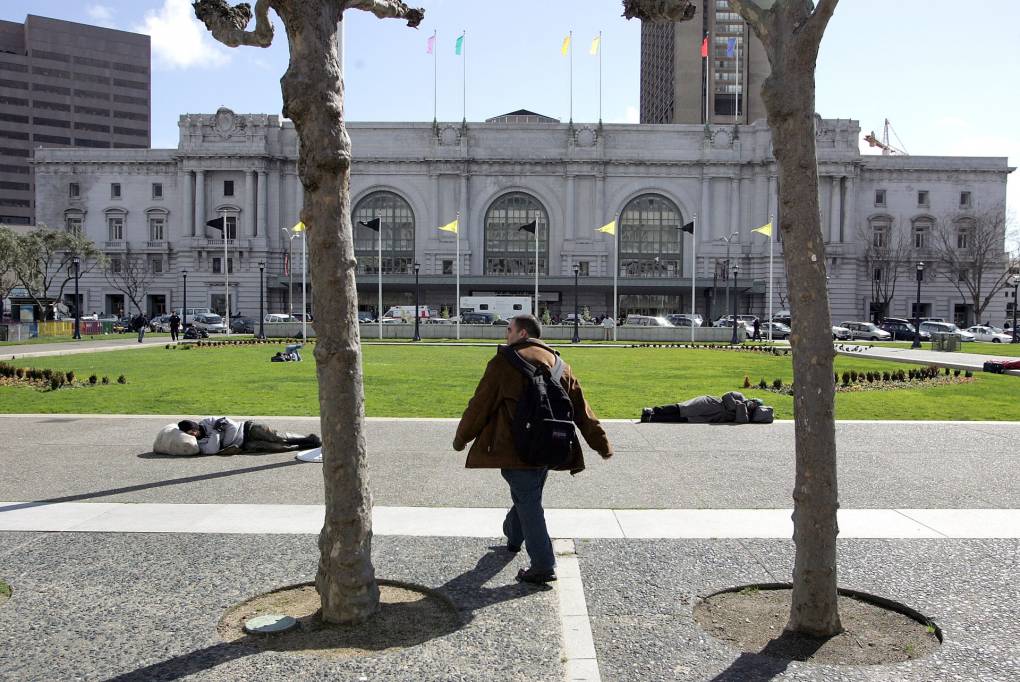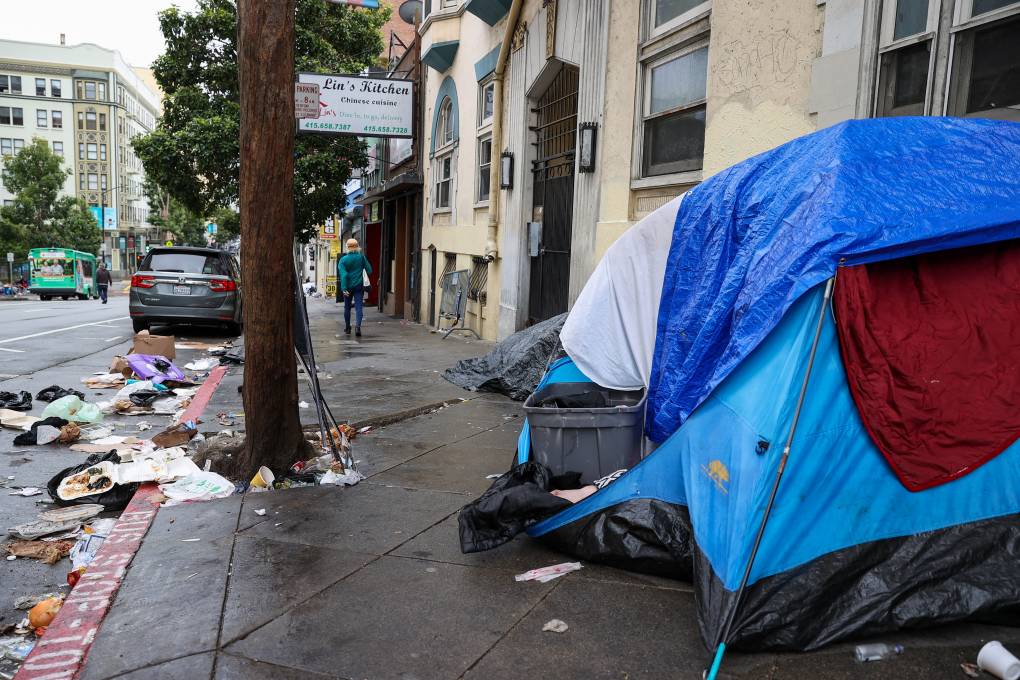Updated Wednesday 2 p.m.
Gov. Gavin Newsom signed a controversial bill Wednesday overhauling the state’s approach to mental health care for people diagnosed with schizophrenia and other psychotic disorders.
The state Senate last month approved the Community Assistance, Recovery and Empowerment Act, which will allow family members and first responders to ask a judge to draw up a treatment plan for people deemed to be suffering from those disorders. Those who refuse could be placed under a conservatorship and ordered to comply.
Currently, unhoused people with severe mental health disorders can be held against their will at psychiatric hospitals, but must be released after three days if they promise to follow up with other services and take prescribed medication.
The new law will let a court order a treatment plan for up to two years, which may include medication, housing and therapy. Participants will have access to a public defender and an advocate to help make decisions about treatment programs and housing. In turn, the behavioral health department in that county would be compelled to provide treatment.
While it shares some elements of mental health programs in some other states, California’s new system will be the first of its kind in the country, according to state Sen. Tom Umberg, D-Santa Ana, who co-authored the law.
Standing outside Momentum for Health, a nonprofit mental health care provider in San José, Newsom on Wednesday said the bill was about redesigning a broken system that often leaves people cycling among homelessness, jail and emergency rooms.
“I’m not interested in the status quo,” he said. “I’m not interested in the compassionless-ness of the approach we have today of people moralizing and normalizing that suffering on the streets and sidewalks.”
But critics of the bill say it coerces people into care, which is less effective than voluntary treatment, and doesn’t provide the necessary health and housing resources.
James Burch, deputy director of the Anti Police-Terror Project, which is part of a statewide coalition opposing CARE Court, called the bill’s signing “devastating.”
“It ignores the very stark reality that we’re living in in this moment,” he said. “We are tens of thousands of beds short in the Bay Area of the permanent housing that we need. … And we are woefully short on voluntary treatment programs.”


